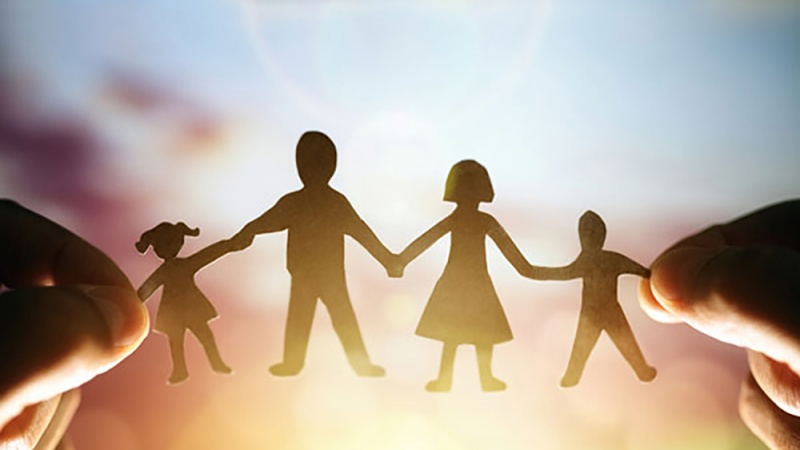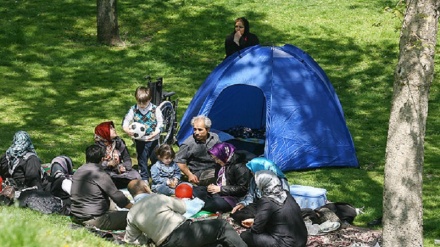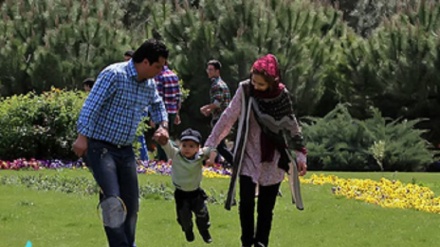Iranian family (10)
-

The legendary and acclaimed Iranian poet, Ferdowsi, believed that human community and its sustainability is based on amity and kindness
The issue of family is a topic of importance; the significance of which has been underlined in the Farsi literature, and the works of great Iranian authors and poets.
The legendary and acclaimed Iranian poet, Ferdowsi, strongly believed that human community and its sustainability and solidity is based on amity and kindness, selection of one's spouse and establishment of a family, and enjoyment of the delicacies and beauties of life in a moderate and modest manner.
Meanwhile, one of the features of the present-day Iranian families is a change in the status of men, as the family's main pillar. Occupation of women, and a change in the consumption models have led to the important contribution of women to ownership, thereby partly providing women the power of decision-making.
A senior member of Iran's Sociology Association notes: Upon the change in the societal norms; development of values; and a rise in the number of urbanites, the restriction in the two genders' relationships has declined, which in turn has left an impact on many behavioral patterns, and family-related values, including marriage. Meanwhile, one of the significant changes within the community and Iranian families is a change in the role and status of Iranian women. As the result of changes that have taken place in the contemporary world, the role of women within families and social organizations has gone through major changes. On this basis, it can be said that in the Iranian community, within the past decade, women have originated changes in family- and marriage-related values more than any other group. The change in the role played by women has in turn led to changes and developments in the traditional fixed roles of breadwinning men, and housewives; with women gaining a new identity, resulting in formation of different and new values.
Expansion of mass media, change in lifestyles, and abundance of sources of information, coupled with praiseworthy growth of rate of literacy and awareness among women, have partly contributed to this change. Currently, Iranian women go on further education at universities and higher education centers more than any other phase in time, boosting their cultural assets. In the meantime, the important point is that the parameters and basis of social changes among women in Iran are different to the related parameters and basis in the Western world. It should be pointed out that Iranian families have not been impacted extensively by the global changes and the Iranian women still consider marriage, establishment of a family, and motherhood as their main priorities.
According to this senior Iranian sociologist, although the ideas and manifestations of the so-called modern world such as modern architecture and urban development, new social organizations and factories, and even eating and clothing habits have powerfully and swiftly entered the community, changing some of the community's appearances; nonetheless, communities such as the Iranian society have not become completely similar to the so-called modern communities. In fact, communities such as the Iranian society have maintained and safeguarded some of their original elements, while also absorbing some new elements. On this basis, it can be said that the trend of changes and developments in Iran has not been linear, and the Iranian families reflect a combination of traditional and so-called modern values.
According to this senior Iranian sociologist, the experience of globalization has left a negative impact on families, while commitment to religious beliefs and values leaves a positive and direct impact on the importance and significance of marriage. Currently, many individuals in different countries such as Iran sense the pressure imposed by the globalization trend. Meanwhile, the role of marriage, as the foundation of familial life, has sharply declined across the world. Global rules and regulation on divorce have eased and the roles played by women and men have changed with the participation of women in the educational system, universities, and workplaces. In the meantime, upon reinforcement of religious beliefs, the value and importance of marriage has been boosted, and those, who are further committed to religious beliefs score higher in their marriages.
This senior sociologist notes that the trend of changes in marriage and outlooks toward family and marriage in countries such as Iran, Egypt, and Malaysia shows that cultural factors, especially Islamic teachings, play an important role in establishment of families.
Mina is an Iranian girl. She had lived in a traditional and extended family. She made utmost efforts to boost her knowledge and to attain elevated scientific status, in order to maintain a more effective share in human community. Upon understanding the present global conditions and circumstances, she made resounding scientific accomplishments, but she decided not to move forward within the framework of individualism and self-centeredness. She had learned in her virtuous family that changes in time and location of residence, frameworks, facilities, technology, and life in high-rise buildings do not change ethical and moral values. Currently, Mina has married. She considers family an important means for emotional growth and development. She is an epitome of Iranian women, who have not been impacted by the Western globalization trend.
MR/EA


